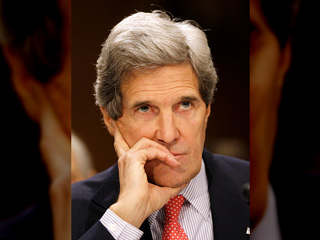
Editor's Note: This op-ed authored by John Prendergast and Sasha Lezhnev originally appeared on MSNBC.
The last time two Americans of this prominence traveled to Congo (then Zaire), it was for the boxing match of the century: the Rumble in the Jungle between George Foreman and Muhammad Ali. Forty years later, Secretary of State John Kerry and U.S. Special Envoy Russ Feingold are going to Kinshasa with a more peaceful agenda than their pugilistic predecessors: to help end what has become the deadliest conflict globally since World War II.
Over the past 20 years, the war in Congo has claimed nearly 6 million lives. Over 50 armed groups and multiple foreign armies have destabilized Congo, using tens of thousands of child soldiers and raping hundreds of thousands of women. Because of the violence, nearly three million Congolese people today have been displaced from their homes.
Yet things are beginning to look up for Congo. A revitalized United Nations peacekeeping force led by African nations is helping dislodge armed groups from their hideouts. The most powerful of these, the M23 militia, was militarily defeated in late 2013, following military pressure from Congo and the peacekeepers as well as international pressure on the rebels’ backers in the Rwandan government. The U.S. Congress contributed by passing legislation which has reduced armed groups’ profits from minerals and has helped make over two-thirds of tin, tantalum, and tungsten mines conflict-free. Those combined efforts have led over 8,000 combatants to disarm since M23’s defeat. Another warlord was filmed earlier this week pleading on his knees to accept his disarmament. A peace process for Congo is now beginning, led by sub-regional power Angola and supported by Feingold and U.N. Special Envoy Mary Robinson.
However, there are still major challenges to peace, which is where Kerry and Feingold can have an impact. In their trip to Congo and neighboring Angola, a focus on three issues could pay significant peace dividends.
Continue reading this op-ed on the MSNBC website.
Photo: AP

